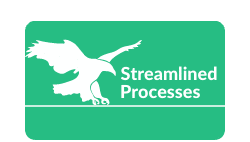For Marketing Automation Tools For Startups, see our main page here.
Why Automation Matters for Startups
Startups face a unique mix of challenges—limited staff, tight budgets, and the need to scale fast. That’s where marketing automation comes into play. With the right tools, startups can compete with bigger companies without exhausting resources. Automation handles time-consuming tasks like email marketing, social media scheduling, lead scoring, and even customer insights.
For example, instead of hiring a full team to follow up with every new lead, an automation tool can send personalized emails based on user actions. Consequently, this creates a more efficient workflow and allows teams to focus on growth-oriented tasks.
Key Features to Look for in Marketing Automation Tools For Startups
Not all automation platforms offer the same value, especially for startups. Choosing software that aligns with your stage of growth is critical. Here’s what really matters:
- Ease of Use: You need a tool your team can use without weeks of training.
- Scalability: Start small but plan for growth. Can the tool grow with your business?
- Integration: It should connect easily with your CRM, website, and analytics tools.
- Customization: Templates and workflows should be flexible to match your customer journey.
- Affordability: Many tools offer free plans perfect for early-stage businesses.
In other words, you want a tool that can simplify your operations, not complicate them.
Popular Marketing Automation Tools For Startups to Consider
Below are several widely-used tools that deliver excellent results to startups across industries. Each has strengths suited to different needs.
- HubSpot: Offers a powerful free CRM and marketing suite that includes email campaigns, lead tracking, and dashboards. Ideal for growing teams.
- Mailchimp: Simple and effective for email automation, landing pages, and ads. Great for startups entering digital marketing.
- ActiveCampaign: Advanced automation and customer segmentation tools combined with a built-in CRM. Excellent for sales-driven teams.
- ConvertKit: Designed with creators in mind. Helps startups build email lists and nurture leads using visual automation rules.
- Drip: Suited for eCommerce-focused startups. Provides advanced customer journeys, purchase-based segmentation, and revenue attribution.
Each of these tools addresses specific startup needs—whether that’s driving awareness, managing leads, or closing sales. Choose what aligns with your current goals.
How Startups Use Automation to Grow
Marketing Automation Tools For Startups aren’t just about convenience—they’re about acceleration. They enable teams to launch and optimize campaigns faster, learn from results, and apply changes without delay. Let’s look at how they’re being applied in real use cases:
- Welcome Series: When someone signs up for your newsletter, they automatically get a sequence of emails introducing your product and brand.
- Abandoned Cart Follow-Ups: eCommerce startups use automation to send timely reminders when someone leaves items in their cart.
- Lead Scoring and Nurturing: B2B startups use automation to rank leads based on interactions, then nurture them with educated content.
- Social Media Scheduling: Automating posts keeps your brand active across channels without constant manual posting.
Most importantly, all of this runs in the background—allowing founders and small teams to stay focused on product development, fundraising, and customer relationships.
Pros and Cons of Marketing Automation Tools For Startups
Despite the many benefits, automation isn’t without its drawbacks. Considering both sides helps in making smarter decisions.
Pros:
- Streamlined workflows reduce time spent on repetitive tasks
- Improved customer experience through personalization
- Better lead management and segmentation
- Scalability without hiring more staff
- Data-driven decision making
Cons:
- Initial setup can be time-consuming
- Risk of relying too heavily on automation and losing the human touch
- Features may overwhelm smaller teams without proper training
- Costs can rise as needs grow beyond the free plan
So, while automation can deliver powerful results, it’s essential to balance tech with genuine human engagement.
Automation Trends Shaping the Startup World
Marketing automation is no longer just about emails and reminders. Startups now have access to AI-powered tools that write subject lines, predict customer behavior, and optimize workflows in real time. As a result, what used to take days now takes minutes.
Recent trends include:
- AI-generated content: From email copy to social captions, AI tools like ChatGPT are speeding up content creation.
- Cross-channel automation: Platforms sync email, SMS, web push, and ads for a seamless experience.
- Predictive marketing: Tools can now anticipate user behavior and recommend next best actions.
- No-code automation: Even non-technical users can create workflows through visual builders.
In the same vein, startups are adopting lean methods that combine agility with automation. The combination is driving remarkable growth across digital-first businesses.
How to Start Using Automation in Your Startup
It’s tempting to try all tools at once, but the best results come from a focused plan. Here’s how to apply marketing automation step by step:
- Identify your top priorities: Is it lead generation, nurturing, or conversion?
- Select a starter tool: Try a platform that matches your workflow and budget.
- Create one automation: Start with a welcome email series or abandoned cart campaign.
- Test and analyze: Use built-in analytics to see what works and refine over time.
- Scale wisely: Once you’re confident, add more workflows and channels.
To clarify, getting started doesn’t require experts—just the will to experiment and improve.
FAQ: Common Questions About Marketing Automation Tools For Startups
Q: Can I afford automation if I haven’t raised funding yet?
A: Absolutely. Many tools have free tiers for early-stage startups. For example, HubSpot and Mailchimp offer essential features at no cost.
Q: How long before I see results?
A: It depends on your strategy and execution. However, most workflows (like welcome emails) show results within weeks.
Q: Will automation replace my marketing team?
A: Not at all. It empowers your team to work smarter. The human touch is still essential for storytelling and creative strategy.
Q: What if I choose the wrong tool?
A: That’s okay. Most platforms offer free trials or monthly pricing, so there’s flexibility to switch as you learn more.
Final Thoughts on Marketing Automation Tools For Startups
Marketing Automation Tools For Startups offer a clear path from concept to scale. They cut manual effort, improve lead management, and turn driven startups into data-informed businesses. Above all, they help teams work efficiently without sacrificing quality or personalization.
This article was created with the assistance of AI tools and reviewed by our team at Streamlined Processes LLC to ensure accuracy and relevance.
Follow us on Facebook here.

